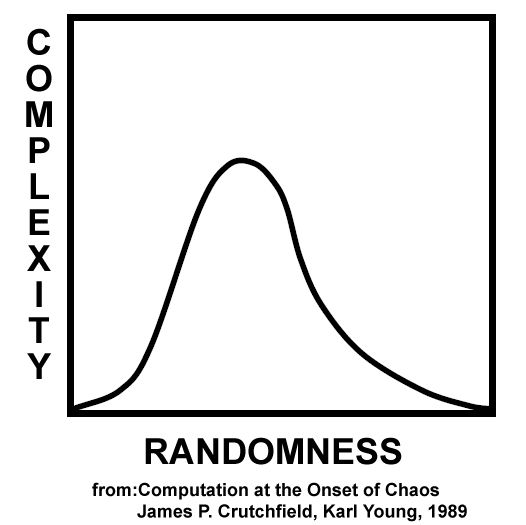
close
The
axes on the above graph are:
Then think of a coin with two heads, it will always come up heads. Each flip is completely predictable and there is no need to remember anything (well, after the first flip anyway) in order to predict the next result. So the Complexity is also zero.
Now imagine a special coin flipping system that always comes up tails when the previous state was heads, but behaves randomly when the previous state was tails. Now you need to remember one bit of information in order to predict if the result will be tails with 100% probability (after a head) or tails with a 50% probability (after a tail). This is a more complex process and it is not completely random so it falls in the middle of the graph above.
A great many natural systems behave in this more-complex, less-random way. By analyzing their data streams certain regimes of order can be found in what looks like random noise.
- Randomness -- completely predictable on the left, utterly unpredictable on the right
- Complexity -- in this context, how much you need to remember to make predictions
Then think of a coin with two heads, it will always come up heads. Each flip is completely predictable and there is no need to remember anything (well, after the first flip anyway) in order to predict the next result. So the Complexity is also zero.
Now imagine a special coin flipping system that always comes up tails when the previous state was heads, but behaves randomly when the previous state was tails. Now you need to remember one bit of information in order to predict if the result will be tails with 100% probability (after a head) or tails with a 50% probability (after a tail). This is a more complex process and it is not completely random so it falls in the middle of the graph above.
A great many natural systems behave in this more-complex, less-random way. By analyzing their data streams certain regimes of order can be found in what looks like random noise.